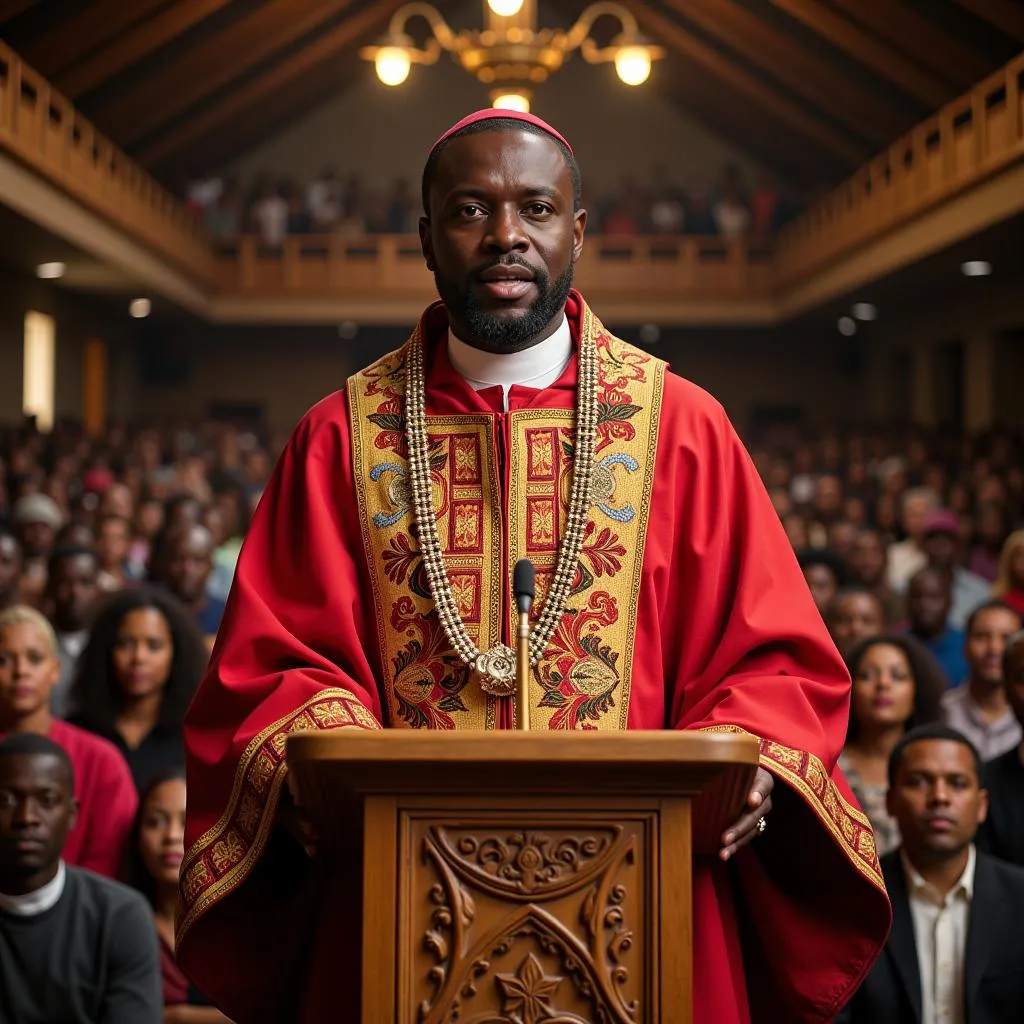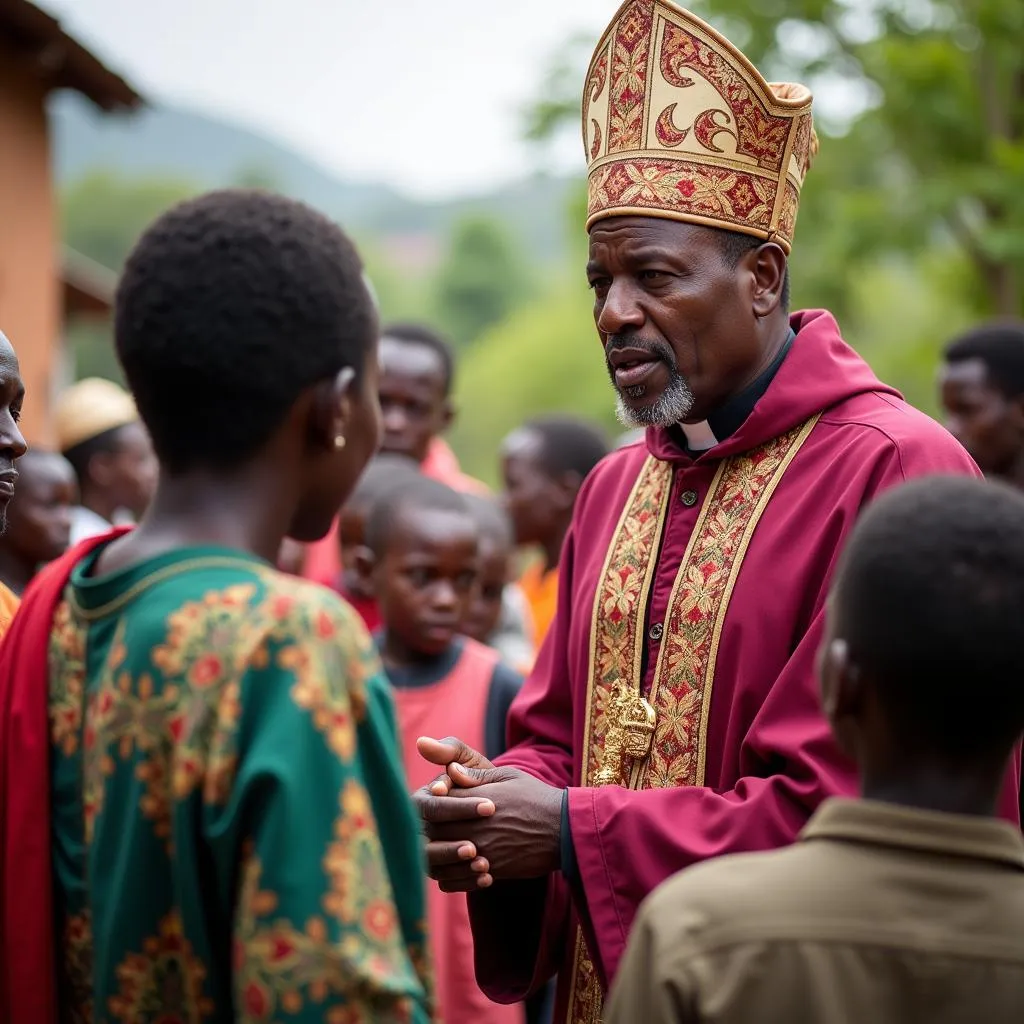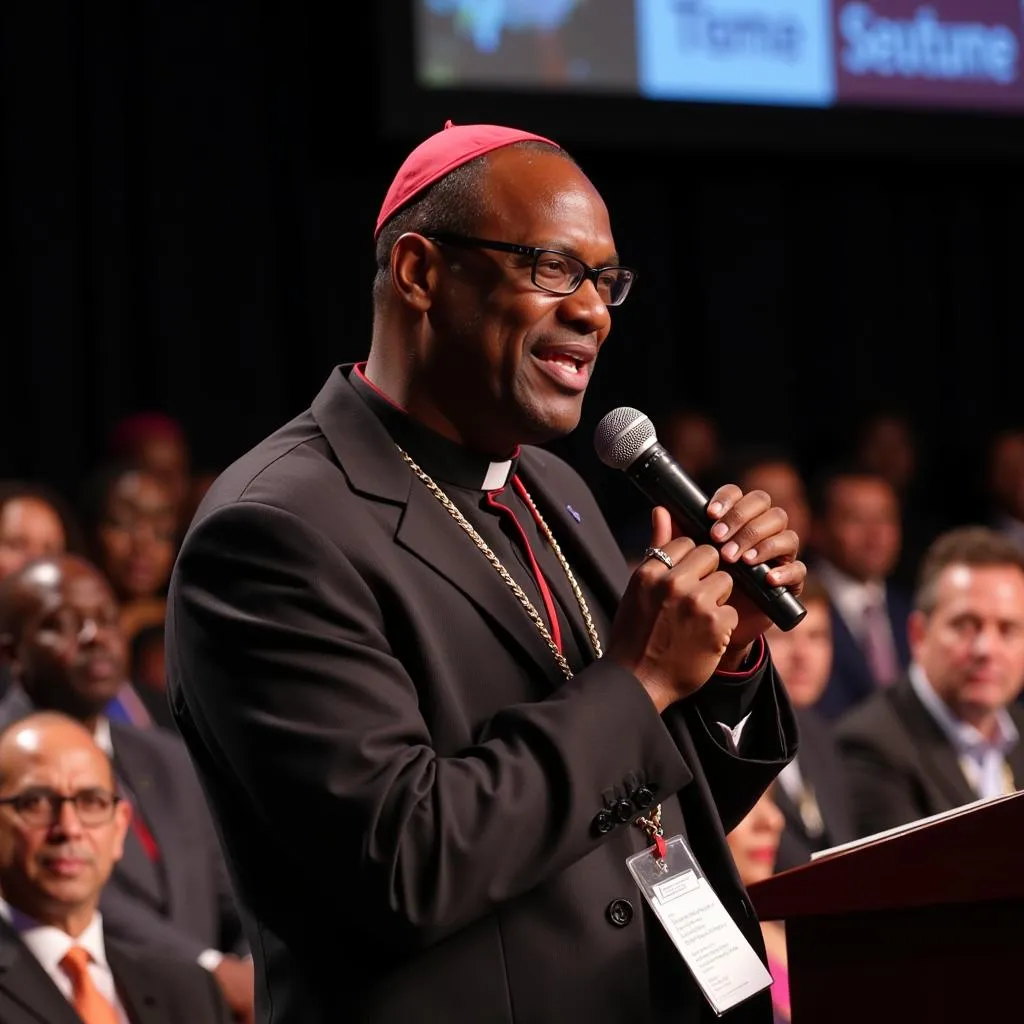African Bishops hold a unique position in the global religious landscape. More than simply religious leaders, they are often central figures in their communities, wielding significant moral and social influence. Their impact extends beyond the walls of the church, shaping discourse on issues ranging from poverty and education to politics and human rights.
 African bishop addressing his congregation
African bishop addressing his congregation
Navigating Colonial Legacies and Modern Challenges
The history of the African bishop is inextricably linked with the continent’s colonial past. The arrival of European powers brought with it new religious structures, often imposed upon existing indigenous belief systems. African bishops often found themselves caught between these competing forces, navigating complex power dynamics and advocating for the needs of their communities. This legacy continues to shape the role of the African bishop today, as they grapple with issues of religious syncretism, cultural identity, and the ongoing impact of colonialism.
A Powerful Voice for Social Justice
One of the most defining characteristics of the African bishop is their unwavering commitment to social justice. From Desmond Tutu’s fight against apartheid in South Africa to the numerous bishops who have spoken out against corruption and human rights abuses across the continent, these religious leaders have consistently placed themselves on the front lines of social change. Their voices resonate deeply with the lived experiences of many Africans, who face significant challenges related to poverty, inequality, and political instability.
 African bishop participating in community outreach
African bishop participating in community outreach
Shaping African Christian Thought
African bishops have played a crucial role in the development of african christian thought. They have been instrumental in contextualizing Christianity within the African context, incorporating local traditions and perspectives. This has led to a vibrant and diverse religious landscape, where Christianity is understood and practiced in ways that resonate with African cultural values.
A Global Platform, A Local Impact
In an increasingly interconnected world, the role of the African bishop extends beyond the continent. Many hold positions of influence within global religious organizations, amplifying African voices on the world stage. They advocate for issues such as climate change, debt relief, and fair trade, drawing attention to the challenges faced by many developing nations.
 African bishop speaking at an international conference
African bishop speaking at an international conference
Conclusion
From their historical struggles against colonialism to their contemporary work advocating for social justice and shaping religious discourse, African bishops have left an indelible mark on the continent and beyond. Their enduring influence lies in their ability to bridge the gap between the spiritual and the secular, providing moral guidance and practical support to millions of people. As we navigate the complexities of the 21st century, the voice of the African bishop remains a vital force for positive change.
Leave a Reply